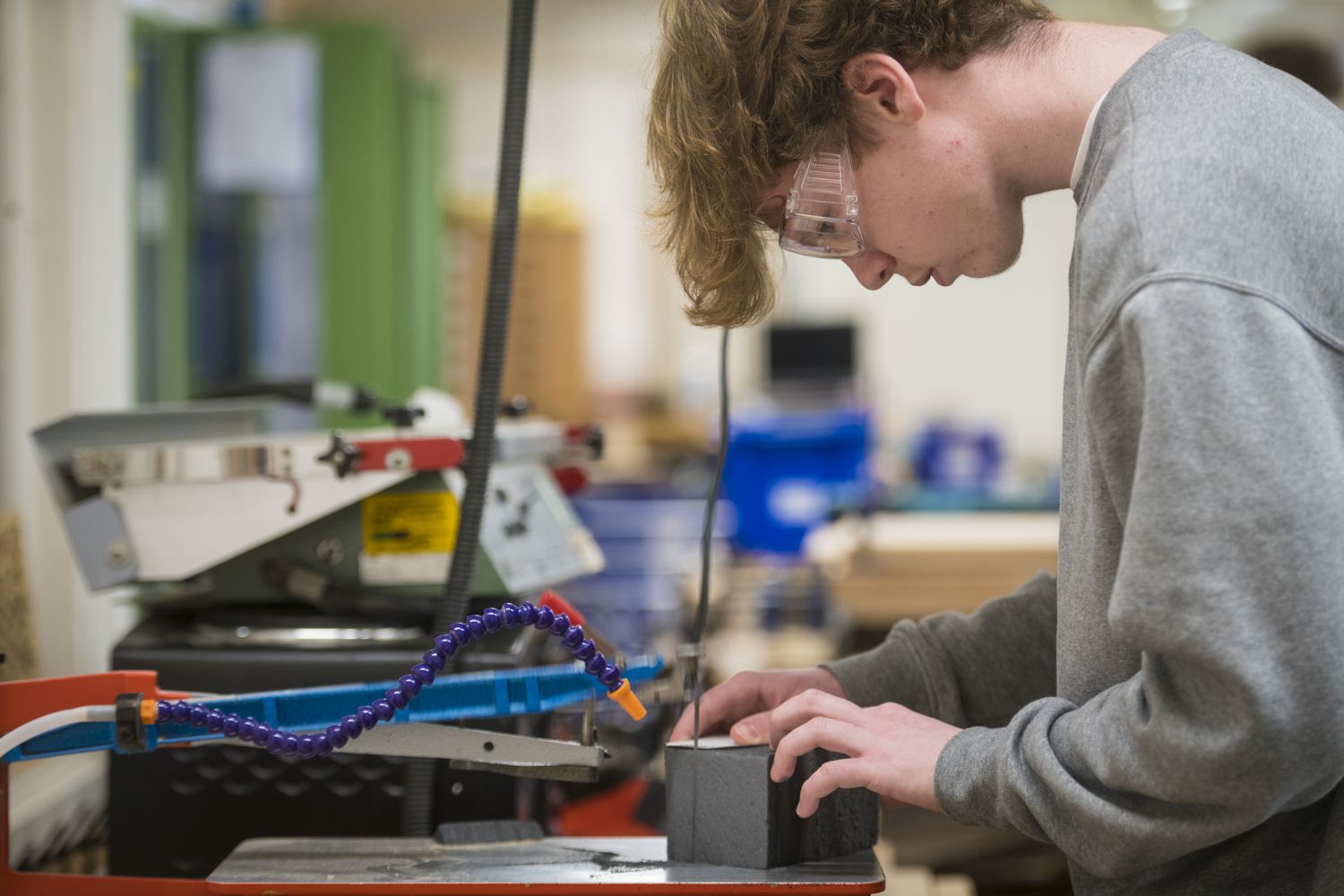
Design Technology (DT) A Level
Course Overview
At its heart, Design & Technology is about combining curiosity, problem-solving and creativity to find solutions to real world problems. If you are creative, practical and technically minded, if you are driven to investigate challenging problems and deliver user-centred solutions, then DT could be for you.
You will carry out practical work using industry standard equipment, such as 3D printers and laser cutters, alongside lessons which focus on the theoretical study of design, material properties and manufacturing. You will be taught by specialist teachers and hear from alumni and guest speakers from industry. The course is further enriched with external trips to design events and exhibitions in Cambridge, London and beyond.
You will develop your understanding of real-world problems and come up with effective, empathetic solutions. We will discuss issues such as ecology, ethics, economics, cultural differences and social responsibility, as well as how designers can improve people’s lives.
Your project work will involve research, creative problem-solving, project management as well as designing and making skills. You will learn how to generate and communicate design ideas with professional computer-aided-design software as well as develop your freehand sketching and rendering. You will consolidate your new skills by undertaking a major coursework project consisting of a portfolio and making a prototype. This is your chance to really explore your interests as you will set your own brief and develop work that will aid you in your own unique progression route.
Managing your own projects and balancing the practical and theoretical demands of the course is a challenging experience, but one that will provide you with fantastic transferable skills for any industry. Design & Technology A Level goes well with the sciences, Maths and other technical courses, as well as artistic and creative subjects. Our students go on to university courses, apprenticeships or employment in product design, fashion & textile design, architecture, interior design, graphic design, 3D design, art, engineering and many others.
Year 1 Modules
- Designing Skills
- Exam Theory
Year 2 Modules
- Final Coursework Project
- Exams


Key Info
Minimum Entry Requirements
- Five GCSEs at Grade 5 including:
- Grade 5 in GCSE English Language
- Grade 5 in GCSE Maths
- Grade 5 in GCSE Design Technology if taken
Assessment
- 50% Exam
- 50% Coursework
- Exam Board: AQA
138
Total students
17
Average class size
Why choose this course?
You will enjoy this course if you are organised, creative, practical and driven. Do you see opportunities to improve items and products you use every day? Can you see ways to make the spaces, products, or systems we all you more sustainable? Are you fascinated by the way things are made and take a scientific approach to learning about materials and processes? This course is about solving problems and developing and constructing solutions.
Skills you'll gain
Analytical skills gained include research, creative problem-solving, project management and theoretical knowledge of material properties and manufacturing techniques.
Practical skills gained include design thinking and idea generation, sketching and modelling and a wide variety of making skills. In the first year, you will be shown how to use all the equipment in the workshop as well as given the opportunity to explore CAD/CAM processes.
After Long Road
Our students go on to university courses, apprenticeships or employment in product design, fashion & textiles design, architecture, interior design, graphic design, 3D design, art, engineering and many others.
Examples of institutions include Loughborough University, Long Road Level 4 Art and Design Foundation, Norwich University of the Arts, Liverpool University, Leeds University, Brunel University, Marshal’s Aerospace.
I have really enjoyed studying DT at long road. We were always encouraged to think outside the box and experiment with ideas and materials. This not only helped our project development, but the way we think about solving problems. I feel I have developed both my design skills and the way I think as a designer through this course. I am now going on to study architecture at university.








